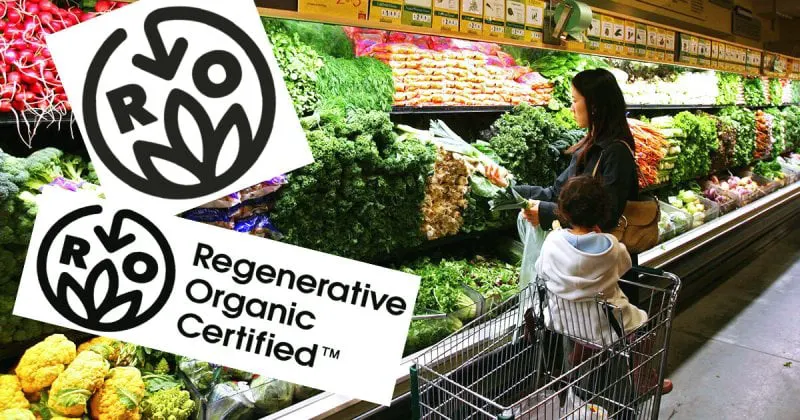Viewpoint: ‘Organic’? ‘Regenerative’? On labels they are little more than buzzwords. Here’s why
Viewpoint: ‘Organic’? ‘Regenerative’? On labels they are little more than buzzwords. Here’s why


Natural, sustainable, organic: yesterday’s news. When it comes to virtuous eating, “regenerative” is the buzzword du jour.
But what, exactly, does it mean? The term lacks a single legal or regulatory definition, which makes for a complicated answer.
Broadly speaking, “regenerative agriculture” describes a holistic approach to farming focused on continuously improving the health of the soil, increasing biodiversity and drawing greenhouse gases out of the atmosphere and into the ground.
But if “organic” is at risk of losing its soul, “regenerative” is even more susceptible to use and abuse by anyone who wants to telegraph climate-friendly values with little in the way of follow-through.
Unlike organic, the latter term has no legally binding definition, and bold claims about how much carbon regenerative practices could sequester—whether, for instance, a grass-fed cow could ever erase its own carbon footprint—are still a matter of intense scientific debate.
“What regenerative means is entirely dependent on who is speaking,” said Dave Chapman, executive director of the Real Organic Project, a nonprofit that produces an add-on certification for farmers who go above and beyond the USDA organic label. “The challenges the organic movement faces in terms of corporate takeover is exactly what’s happening in the regenerative movement, only with regenerative, it’s happening more quickly.”
This is an excerpt. Read the original post here

 | Videos | More... |

Video: Nuclear energy will destroy us? Global warming is an existential threat? Chemicals are massacring bees? Donate to the Green Industrial Complex!
 | Bees & Pollinators | More... |

GLP podcast: Science journalism is a mess. Here’s how to fix it

Mosquito massacre: Can we safely tackle malaria with a CRISPR gene drive?

Are we facing an ‘Insect Apocalypse’ caused by ‘intensive, industrial’ farming and agricultural chemicals? The media say yes; Science says ‘no’
 | Infographics | More... |

Infographic: Global regulatory and health research agencies on whether glyphosate causes cancer
 | GMO FAQs | More... |

Why is there controversy over GMO foods but not GMO drugs?

How are GMOs labeled around the world?

How does genetic engineering differ from conventional breeding?
 | GLP Profiles | More... |

Alex Jones: Right-wing conspiracy theorist stokes fear of GMOs, pesticides to sell ‘health supplements’




 Viewpoint — Fact checking MAHA mythmakers: How wellness influencers and RFK, Jr. undermine American science and health
Viewpoint — Fact checking MAHA mythmakers: How wellness influencers and RFK, Jr. undermine American science and health Viewpoint: Video — Big Solar is gobbling up productive agricultural land and hurting farmers yet providing little energy or sustainabilty gains
Viewpoint: Video — Big Solar is gobbling up productive agricultural land and hurting farmers yet providing little energy or sustainabilty gains Fighting deforestation with CO2: Biotechnology breakthrough creates sustainable palm oil alternative for cosmetics
Fighting deforestation with CO2: Biotechnology breakthrough creates sustainable palm oil alternative for cosmetics Trust issues: What happens when therapists use ChatGPT?
Trust issues: What happens when therapists use ChatGPT? California, Washington, Oregon forge immunization alliance to safeguard vaccine access against federal undermining
California, Washington, Oregon forge immunization alliance to safeguard vaccine access against federal undermining 30-year-old tomato line shows genetic resistance to devastating virus
30-year-old tomato line shows genetic resistance to devastating virus The free-range chicken dilemma: Better for birds, but with substantial costs
The free-range chicken dilemma: Better for birds, but with substantial costs ‘You have to treat the brain first’: Rethinking chronic pain with Sanjay Gupta
‘You have to treat the brain first’: Rethinking chronic pain with Sanjay Gupta
